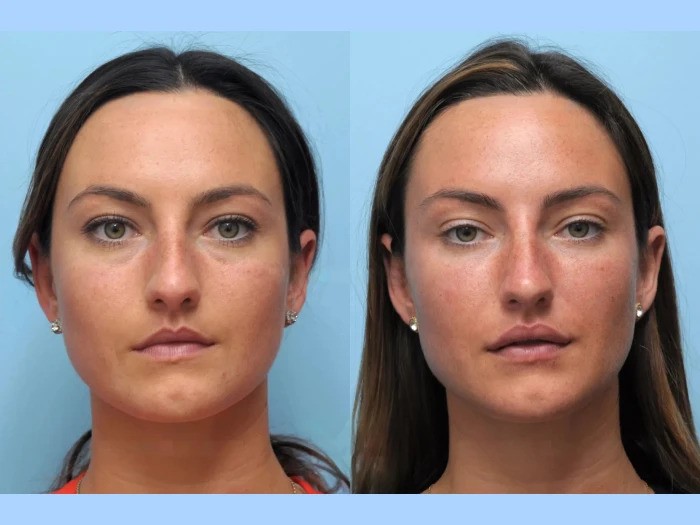No one should have to choose between a paycheck and personal dignity. If you’re dealing with unwanted comments, touching, propositions, explicit messages, or retaliation after saying “stop,” Chicago, Illinois, and federal laws give you real tools to act. A sexual harassment lawyer in Chicago can help you protect your job, preserve evidence, and pursue compensation—quietly through negotiation or formally through an agency or court.
What Counts as Sexual Harassment?
Sexual harassment is unlawful when it is either:
-
Quid pro quo: A supervisor conditions benefits (hiring, hours, promotion, scheduling) on sexual favors—or threatens consequences for refusing.
-
Hostile work environment: Severe or pervasive conduct (comments, slurs, sexual jokes, images, DMs, “accidental” touching, stalking, repeated asks for dates, explicit texts) that would make a reasonable person’s job harder or humiliating. One extreme incident can be enough.
It’s also illegal to harass because of sexual orientation, gender identity, pregnancy, or sex stereotypes. Harassment by customers, vendors, or co-workers can trigger employer liability if the company knew or should have known and failed to act.
Retaliation is illegal. If you complain in good faith or participate in an investigation, your employer can’t cut hours, demote, discipline, or fire you for it.
Which Laws Protect You in Chicago?
-
Title VII of the Civil Rights Act (federal) — enforced by the EEOC; applies to most employers with 15+ employees.
-
Illinois Human Rights Act (IHRA) — enforced by the Illinois Department of Human Rights (IDHR); broadly protects employees statewide, including many small employers.
-
Chicago Human Rights Ordinance — enforced by the Chicago Commission on Human Relations (CCHR) for incidents within city limits.
Each law also prohibits retaliation and requires employers to take reasonable steps to prevent and correct harassment.
Deadlines (Don’t Miss These)
-
EEOC: In Illinois (a deferral state), you generally have up to 300 days from the harassment or retaliation to file a Charge of Discrimination. After a Right-to-Sue, you usually have 90 days to file in federal court.
-
IDHR (IHRA): Typically 300 days to file; cases can go to the Human Rights Commission or Illinois circuit court after investigation.
-
CCHR: City cases often have a 300-day window as well.
Different rules can apply to government employers, unionized positions, or certain claims. Talk to counsel early so you preserve every option.
What a Chicago Sexual Harassment Lawyer Actually Does
-
Confidential Strategy Session
Clarify goals: stop the behavior, protect your job, secure compensation, or negotiate a separation with clean references and NDA terms. Pick the best forum (EEOC, IDHR, CCHR, state or federal court). -
Evidence Plan
Build a timeline. Save emails, chats (Slack/Teams), DMs, screenshots, photos, schedules, performance reviews, complaint forms, witness names, and notes. If the company has video or access logs, counsel can send preservation letters immediately. -
Internal Reporting (When Safe & Strategic)
Using the handbook procedure can strengthen your claim and anti-retaliation protections. Your lawyer helps script a concise report to HR or a hotline and tracks the employer’s response. -
Administrative Charge & Rebuttal
Most claims start with a charge at EEOC/IDHR/CCHR. Lawyers frame legal theories (quid pro quo, hostile environment, retaliation, failure to prevent/correct), respond to the employer’s position statement, and push for mediation. -
Negotiation & Mediation
Many cases resolve with back pay, compensatory damages, policy changes, training, a neutral reference, and confidentiality terms. Your lawyer values the case (accounting for emotional distress, medical bills, lost wages) and negotiates for a better package. -
Litigation
If needed, counsel files in the Northern District of Illinois or state court, conducts discovery, deposes supervisors/HR, engages experts (economic/psychological), and prepares for trial—often increasing settlement leverage.
Remedies You Can Seek
-
Back pay and benefits (lost wages, bonuses, PTO)
-
Front pay or reinstatement
-
Compensatory damages (emotional distress)
-
Punitive damages for egregious conduct (where allowed)
-
Attorneys’ fees and costs (often available to prevailing employees)
-
Injunctive relief (policy changes, training, personnel moves, clean personnel file, neutral references)
Federal statutes have damage caps tied to employer size; state/city forums may differ. Your lawyer chooses the venue that best fits your remedies.
Practical Steps You Can Take Today
-
Write your timeline: dates, places, exact words/acts, witnesses, and your responses.
-
Save proof, privately: screenshots, emails, calendars, photos of posted materials; keep copies at home.
-
Use the policy (if safe): report to HR or a hotline; keep a copy of your report and responses.
-
Tell a trusted doctor or counselor: treatment both supports recovery and documents harm.
-
Don’t sign quickly: Don’t accept severance or “final warnings” without legal advice.
-
Be careful online: Avoid social-media posts that can be twisted against you.
-
Consult early: Short deadlines and early missteps can shrink a strong claim.
Employer Perspective (If You Run a Chicago Workplace)
-
Zero-tolerance policy with clear reporting paths (including bypassing the chain of command).
-
Prompt, neutral investigations with documented findings and proportional discipline.
-
Manager training on bystander intervention, retaliation bans, and the duty to act on observed misconduct.
-
Consistent enforcement: similar facts → similar consequences.
-
Accommodation & safety planning: schedule changes, transfers, or remote options to protect complainants during investigations.
Proactive compliance reduces exposure and shows juries the company took prevention seriously.
FAQs
Can I be fired for reporting?
Retaliation is illegal. If your hours drop, duties change, or you’re written up after reporting, document it and contact counsel immediately.
What if I’m still employed and want the behavior to stop—not a lawsuit?
Many cases resolve internally or in mediation with confidentiality, training, a transfer, or a personnel change. A lawyer can keep it as low-profile as possible while protecting you.
Do I need direct evidence?
No. Credible testimony, patterns, timing, comparator evidence, and corroborating documents can prove your case.
What if the harasser is a customer or vendor?
Employers must act once they know or should know. Report it; failure to intervene can create liability.
Bottom Line
You don’t have to navigate this alone—or sacrifice your career to stop the abuse. A sexual harassment lawyer Chicago will protect deadlines, preserve evidence, and pursue relief that fits your goals—whether that’s stopping the behavior, safeguarding your role, or obtaining compensation and closure. Start with a confidential consult, build your timeline, and save your proof. The sooner you act, the more options you keep.




